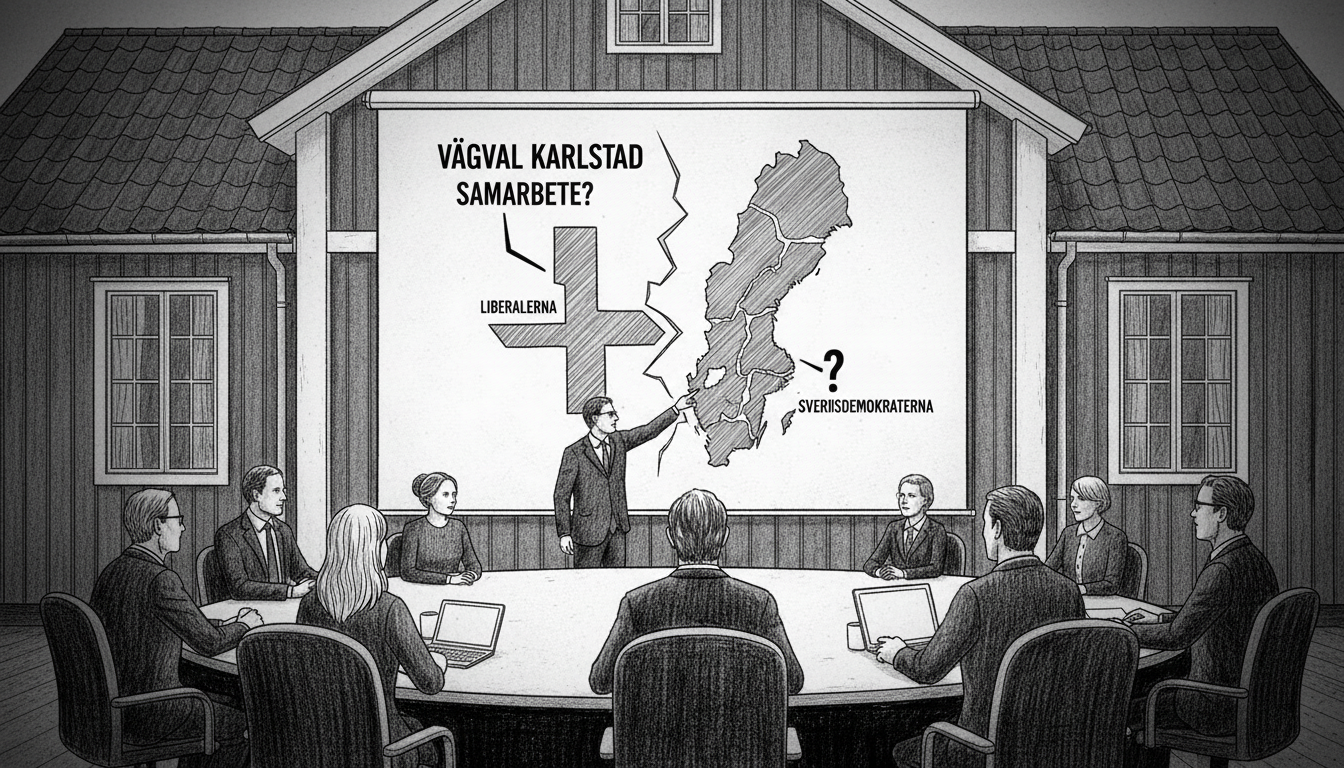The Liberal Party faces internal division over its stance toward the Sweden Democrats during their national conference in Karlstad. Delegates debate whether to reject government cooperation while keeping options open for post-election agreements. The heated discussion represents one of the most contentious issues at the gathering.
Party leadership proposes saying no to Sweden Democrats in government but maintaining potential for future agreements. This compromise position splits delegates who hold strong views on both sides. The debate features sharp rhetoric and passionate arguments from various factions within the party.
Christoffer Karlsson, opposition councilor in Lund, addressed the conference. He urged delegates to move beyond government quarrels and focus on policy priorities. His comments reflect broader tensions within Swedish center-right politics about cooperation with the nationalist party.
This internal conflict mirrors challenges facing other Nordic center-right parties. Similar debates occur in Denmark and Norway about cooperation with nationalist movements. The Liberal Party's decision could influence Sweden's political landscape for years.
Sweden's unique political system requires parties to navigate complex coalition dynamics. Minority governments often depend on support from across the political spectrum. This reality forces difficult choices about cooperation and principle.
The Liberal Party conference debate comes amid shifting political alliances across Scandinavia. Traditional center-right parties grapple with how to address immigration concerns while maintaining liberal values. This balancing act creates internal tensions that surface during party conferences.
International observers watch these developments closely. Sweden's approach to nationalist parties could influence similar debates in other European countries. The Liberal Party's decision may set precedents for center-right politics beyond Scandinavia.
Party delegates face a strategic dilemma. Complete rejection of Sweden Democrats could limit future governing options. Closer cooperation risks alienating traditional liberal voters. This difficult choice explains the intense debate at the Karlstad conference.
The outcome will affect Sweden's next parliamentary elections. Potential coalition configurations depend on where parties draw their cooperation lines. Voters pay close attention to these positioning decisions.
Swedish political experts note this debate reflects broader European trends. Center-right parties everywhere struggle with similar questions about nationalist movements. The Liberal Party's resolution could provide lessons for comparable parties abroad.

